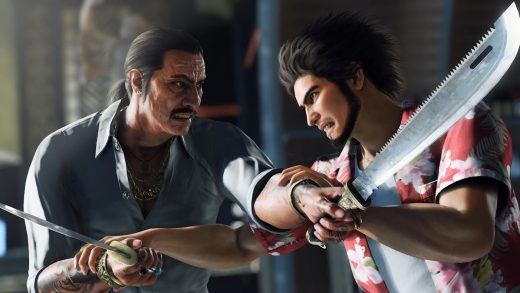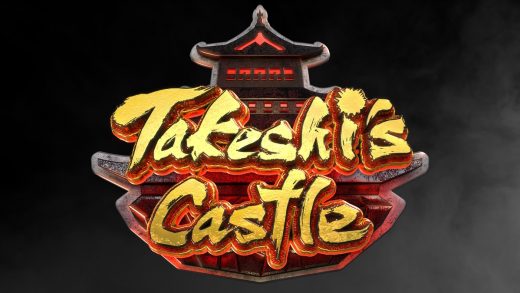
The worst year in their lives is getting better.
New Assiniboia Downs grooms Tetiana and Ilona (who asked their last name not be used) are a long way from their homes in Ukraine. They’re loving Canada, but they miss their homeland. Tetiana got out of Ukraine relatively early in the war. Ilona wasn’t so lucky.
The pair of highly educated 20-something Ukrainians arrived in Canada in February, searched for online training programs, and found the groom-training program sponsored by the Manitoba government. They’ve been at the track for four weeks now and share responsibility for looking after seven horses in trainer Devon Gittens’ barn.

Mike Deal / Winnipeg Free Press
Horse groomers Tetiana (left) and Ilona came to Winnipeg, where they are rebuilding their lives, after fleeing the Russian invasion of Ukraine.
Tetiana is from Odesa, Ukraine, “spelled with one ‘s’,” said Tetiana. “If Ukrainians see this, they will be very angry if it is spelled with two ‘ss’ because that’s the translation from Russia.” Odesa is 443 km south Kyiv, the Ukrainian capital. Ilona is from Mariupol, one the cities in Ukraine’s southeast that was obliterated by Russian bombs.
“When the war began, we were in Mariupol,” said Ilona.” The whole city was destroyed and occupied by Russians. We were lucky. Our house was good, but the city was destroyed. For two months there was no food, no water, no normal life, no nothing, just bombing 24 hours a day. And they wouldn’t let us go back to the Ukrainian side where the army was.”
“Think of a city like Winnipeg,” said Tetiana. “And try to think about bombs every day, hundreds of bombs, every day. She doesn’t have a city anymore. My city was quiet. I saw many bombs inside my city, but not like Mariupol. We didn’t have electricity for two months. Odesa has shops and restaurants, and they had electricity from diesel generators, and I could buy food there, but my fridge didn’t work.”
“In Mariupol we didn’t have water, we didn’t have food, we had nothing,” said Ilona, who decided to make the dangerous trek through Russian occupied territory to get to the Lithuanian border. “Russians interrogated everyone before they left Mariupol. They checked my phone, checked our bodies for tattoos (with Ukrainian symbols) and they let us pass. It was very difficult.
“It was scary. I cried all the time. I was always afraid. They could kill me at any moment. One night they came with a gun and took my money and my phone. What can I do to them? What can we do to guys with guns? Nothing. That’s why I was happy.
“She was happy because they just wanted her money,” said Tetiana. “Yes,” agreed Ilona. “They just wanted money and they left. They didn’t kill me. That’s good news.”
“Many people were killed,” said Tetiana. “Women and children too.”
Tetiana and her husband weren’t in Ukraine when the war started but she returned to Ukraine in July, before finally leaving Odesa in February. Tetiana’s parents and sister are still in Odesa. Ilona managed to get her parents to Lithuania with her, but her grandmother is unfortunately still in Mariupol.
“I don’t think she’s OK, but I don’t know how to help her,” said Ilona. “We have some people who visit her to check if she’s okay. She’s 80. She doesn’t want to leave.”
Both women are trying to rebuild their lives in Canada, and have work ethics, education and big Ukrainian hearts on their side.
Ilona has a bachelor’s degree in philosophy from Kharkiv National University and a master’s degree in Public Relations, Advertising and Journalism from Kyiv National University. Tetiana has a master’s degree in physics from Odessa I.I. Mechnikov National University.
When Ilona finished her bachelor’s degree she went to work as an aerial gymnast in a small circus and travelled around the world for eight years, before returning to finish school in Kyiv. The circus work gave her some exposure to animals, just enough to help her at the track. Tetiana had many jobs while in school, including one as a teacher and another as an administrator, but also has some horse experience working for a stable in a rural area of Ukraine.
“I really like horses,” said Tetiana. “The owner taught me how to ride and I helped her with lessons, barn work, everything. We had no bedding for the horses, no straw or shavings. It’s war, so we didn’t have anything.”
How does it feel to be so far away from a homeland to which they may never be able to return?
“We can’t explain it,” said Tetiana. “My life is destroyed,” said Ilona. “My husband doesn’t understand my emotional state,” said Tetiana. “Of course, it’s hard.”
“I would like to stay here for a contract for five months,” said Tetiana. “I still don’t know what I will do,” said Ilona. “Because to get a permanent residence in Canada and one of the rules in six months at a full-time job. But I’m happy to have a chance with these amazing animals.”
“If Russian gets out of my city I can go back,” said Ilona. “I would like to start my life again here in Canada,” said Tetiana. “Yes, we want to try a normal life,” said Ilona.
Have people treated them nicely since they arrived in Canada.
The answer was an emphatic “Yes.” In unison.
“Amazing people here.” Said Ilona. “Very good people.”
Yes, agreed Tetiana. “Amazing. I like Canadian people. Our barn people who help us, Claremont, Marcia and our trainer Devon. All very good people.”
“I want to say thank you to Canada and I want to thank Manitoba and Winnipeg,” said Ilona. “Because this city and this province helps Ukrainians very much.”
“And the Ukrainian community also,” added Tetiana.
“Manitoba let us stay in a hotel for a month for free,” said Iona. “Very big help. And Canada gave Ukrainians $3,000 for a start. We are very grateful for this.” Tetiana nodded in agreement. “We now have a work visa for three years.”
“Thank you, Canada.”


